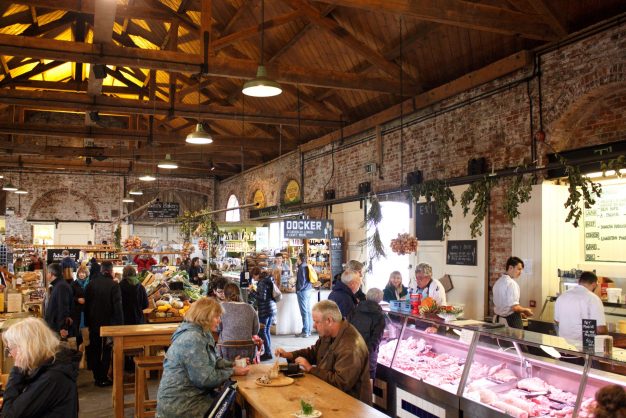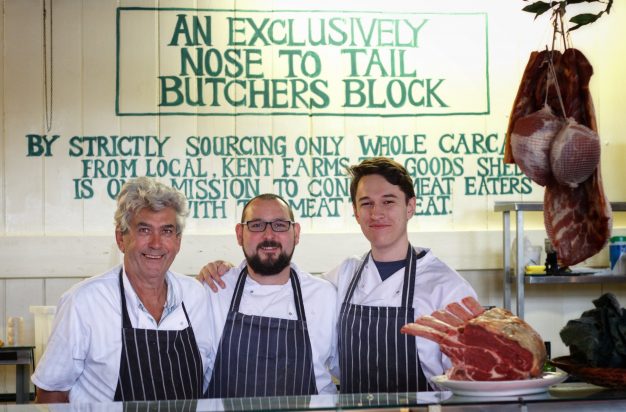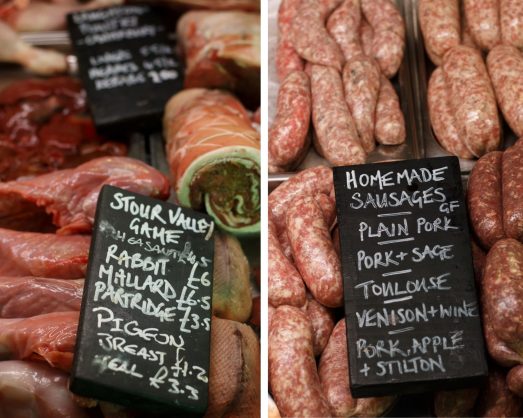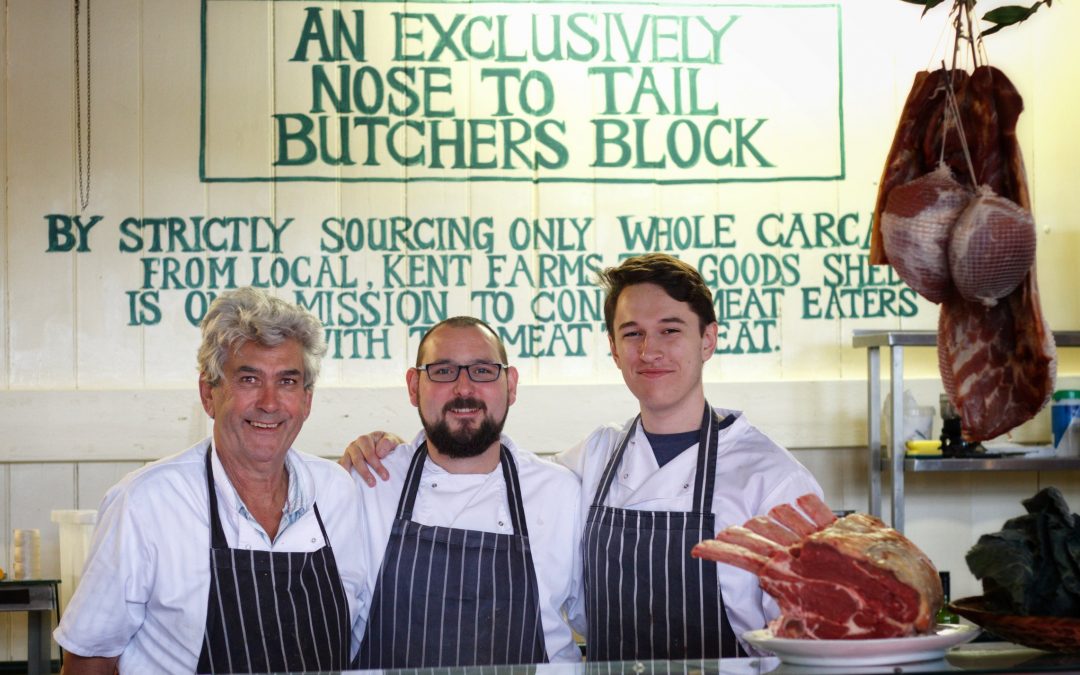If you’re a visitor to our Goods Shed, you may have noticed that in the late spring this year we overhauled our butchery to make it strictly local only, whole carcass, and nose-to-tail. We did this because we believe that this approach not only connects meat eaters with the meat they eat, but that it fundamentally makes a positive difference within the controversy of our meat industry. How exactly does it do that?

It pays the farmer the price they deserve
Our farmers in this country are in a crisis. When a farmer sells their product to market, they are increasingly given very little in return as prices continue to be driven down and there is no alternative. You only have to look at the number of apples rotting on the trees in our orchards this year because the return is so little that it’s cheaper to leave them there than to pay for pickers. Instead, you’ll find apples on the supermarket shelves flown in from thousands of miles away.
When a farmer sells their animal to us, we pay a fair price for the whole carcass, rather than just the popular cuts that a supermarket commands in high numbers.
It reduces waste
When the demand is only for popular cuts – chicken breasts and thighs for example – what do you think happens to the rest of the carcass? It is simply thrown away or sold for next to nothing to be processed into cheap products. By buying the whole carcass and subsequently selling it, so much less goes to waste and our customers get to experience the thrifty tradition of cooking with lesser known, yet extremely flavoursome cuts.
It contributes to our local food network and economy
Sourcing and shopping locally supports small producers; supports small retailers, and benefits the local economy. Pound for pound, local food outlets supports three times the number of jobs that supermarkets do. The network of links between people who buy, sell, produce and supply food form a 30 mile area and weave them together in a local food web. When we choose to promote and eat local food, we support and strengthen that web.

It has transformed the lives of our butchers
We took an entirely new team when we switched to our new butchery, with many of our butchers coming from a supermarket background. They have worked so hard and been delighted to put their traditional skills to proper use, breaking down each animal as it comes in and having the time to talk at length with our customers about why and what they do, as well as advising on different cooking methods.
It engages with the customer
Thank you so much to everyone so far who has been to support us. We’ve built an incredible rapport with our customers – how exactly should you cook a pig’s tail? – and have loved trying out your sausage suggestions each season (our particular favourite was pork and gooseberry in the height of summer).
It is more respectful to the animal
Our animals are sourced from small, local farms who dedicate themselves to providing a good life for the creature, and who take each of them into small, local abattoirs, comforting them throughout the process. When we buy the whole animal, nothing goes to waste which, when the life of a beautiful creature has been taken for our consumption, extends gratitude and a respect lost in mass slaughter and frivolous waste.
It provides an alternative for those who want to eat less meat, but better meat
We can all agree that we should eat less meat, with some of us choosing not to eat it at all. Everyone is different. For those of us who want to make more conscious decisions about what we consume, there is little choice or knowledge at the supermarket to help support this. Your local shop or market is the best place to facilitate eating consciously. We only hope that our model might be adopted by other butcheries. We know it works – better for the planet, better for the animal, better for the farmer, and better for you.

It’s not more expensive
When a supermarket slashes its prices, they’ve indiscreetly put them up elsewhere, so your shop balances out all the same. You could choose to buy chicken breasts at the supermarket for one meal (wondering if at £2 a pack, how much has gone to the farmer?) or the whole chicken for a fraction more at your local butchery and from the latter you can use every scrap: roast dinner, leftover meat for sandwiches, and bones for stock. Meat from your local butcher is better value in terms of quality (no middleman to pay), in terms of return to the farmer, and the flavour is far superior and satisfying.
What more can be done?
We believe that this could be a solution to the problem of industrial meat farming: supporting small, local farms, farmers and abattoirs. And there’s still so much more that could be done! If the government subsidised small farms and abattoirs, this could further improve production and husbandry – and the lives of our farmers.
Ultimately though, much power also lies in the hands of the consumer. Shop locally more frequently, choose better quality at good value, and drive the demand away from the mass market, to the small guys. Every step makes all the difference.
